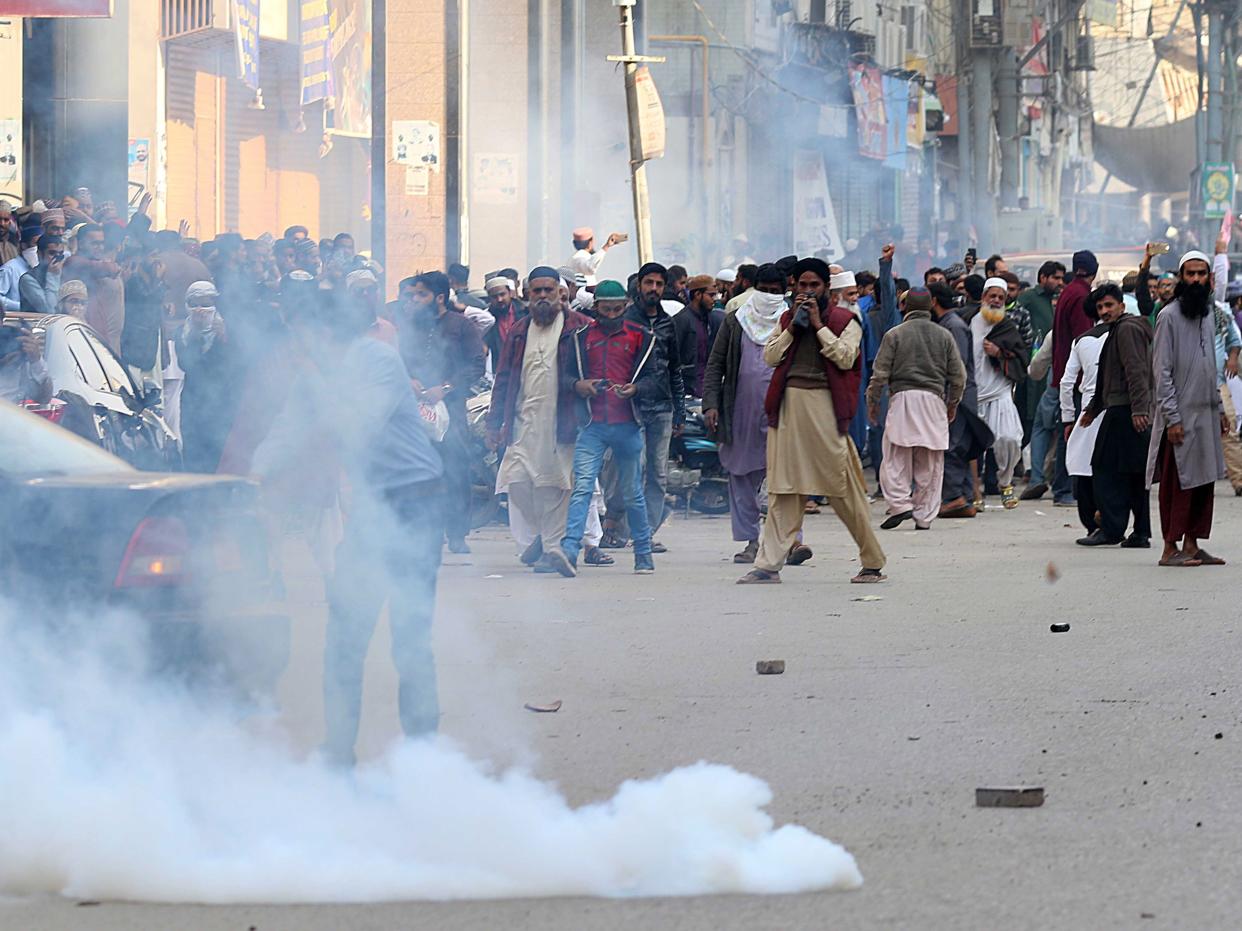Christian couple on death row in Pakistan for sending ‘blasphemous’ text messages

Blasphemy cases in Pakistan often spark violent protests by Islamic groups. Amnesty International is calling for a repeal of the country’s blasphemy laws amid an ‘alarming uptick’ in accusations
(EPA)A Christian husband and wife in Pakistan who are facing execution for sending “blasphemous” texts must be released immediately, Amnesty International has said amid a worrying rise in blasphemy accusations in the country.
The human rights group said Shagufta Kausar and Shafqat Emmanuel have been imprisoned since 2013 and were convicted and sentenced to death in April 2014 by a court in Toba Tek Singh.
The couple were accused of sending “blasphemous” texts to a mosque cleric that insulted the Prophet Mohammad.
The messages came from a phone containing a SIM card registered in Shagufta’s name, but both deny the allegations and believe the SIM was obtained by someone using a copy of her national identity card.
Amnesty International is calling on the Pakistani government to urgently repeal its blasphemy laws, which it says “have been flagrantly abused and caused an immeasurable amount of harm”.
The NGO also called for the immediate and unconditional release of Shagufta and Shafqat ahead of an appeal hearing in the case at the Lahore High Court on Wednesday.
But the court has again delayed the appeal hearing for the couple indefinitely. The appeal was due to be heard in April 2020 but was postponed due to the coronavirus pandemic.
The couple’s lawyer, Saiful Malook, has accused the judge of delaying the case “due to fear”, given that blasphemy cases are highly controversial and often pose a danger to all involved.
Samira Hamidi, Amnesty International’s deputy regional director for south Asia, said: “The mandatory death sentences for Shagufta Kausar and Shafqat Emmanuel are emblematic of the dangers faced by the country’s religious minorities as long as the blasphemy laws remain in place.
“They have been in prison for the better part of eight years waiting for their appeal hearing, when they should not be in jail in the first place. We call for their immediate and unconditional release.”
Mr Malook told the Guardian no date has been given for the next hearing, adding: “Judges in Pakistan will rarely hear cases of blasphemy until there is political or international pressure. There is no substantive proof against my clients and they should have been released long ago.”
Under Pakistan’s blasphemy laws, anyone accused of insulting Islam or other religious figures can be sentenced to death if found guilty. While authorities have yet to carry out a death sentence for blasphemy, just the accusation of blasphemy can cause riots in the country.
Such allegations have been used to intimidate religious minorities or settle personal scores, according to domestic and international human rights groups. Amnesty International adds there has been an “uptick” in accusations against artists, human rights defenders and journalists over the last year.
In August last year, police filed a case against actor Saba Qamar and singer Bilal Saeed for filming a music video in a mosque. Later that month, police also filed a case against journalist and human rights defender Marvi Sirmed for a tweet she posted on 22 August.
Read More
Pakistan film that received death threats for 'blasphemy' is tipped for Oscars 2021
US group appeals for Pakistani woman jailed on blasphemy
The troubled history of Pakistan’s blasphemy law
US citizen shot dead in court during Pakistan blasphemy trial
Outrage as Pakistan sentences academic to death for blasphemy

